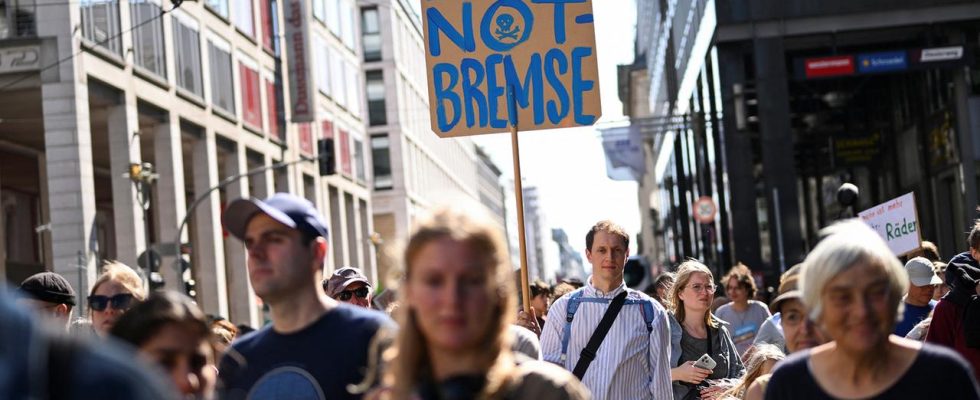Tens of thousands took to the streets in Germany to demand better climate protection. The response in Berlin was great – but the number of participants from the past was not reached.
Thousands gathered in front of the Brandenburg Gate for the 13th global “Fridays for Future” climate strike. Good atmosphere, lots of sun and a broad social alliance. Many demo visitors complain that the many crises are overshadowing the issue of climate change and are not surprised that the movement can no longer mobilize the masses of four years ago.
“Climate change is stupid and is destroying the world”
Philippa is seven years old and came to the Brandenburg Gate with her class and parents. She can formulate quite precisely why she is here: “Because I think it’s stupid that climate change is destroying the world.” This is not the first time she has taken part in a climate strike. Three years ago she was at the Brandenburg Gate with her mother. “But I can’t remember that.”
Some companies come with their entire workforce
Five years ago, students launched the climate strike actions and founded “Fridays for Future”. According to activists, 2.3 million people demonstrated worldwide at the first global climate strike in March 2019. In the fall of the same year, more than 100,000 demonstrators took to the streets in Berlin alone. Today there are far fewer; according to the police, 12,500 people gathered at the Brandenburg Gate, the organizers speak of 24,000. There is great support from various social groups. Trade unions and NGOs have been joining the campaigns for years, and some companies are coming with their entire workforce.
“Fridays for Future” brings people together
Like Sirplus, an online supermarket that sells discarded food cheaply. “I believe that the framework of “Fridays for Future” definitely brings many groups together,” says Heiko Heiter from Sirplus. “There are ‘Entrepreneurs for Future’, but also many other organizations that don’t see themselves under the name ‘Fridays for Future’, but then still take to the streets for a global event like today.”
Criticism of the change Climate Protection Act
The demands of “Fridays for Future”: Save the climate, move away from fossil fuels oil, coal and gas. And more radically and faster than the federal government is currently doing. The currently planned changes to the Climate Protection Act are particularly criticized. Michaela Scharpf is a legal trainee from southern Germany. She has been doing an internship in Berlin for two months. Changing the law is bold, she says. “The transport sector can then continue to emit as much as it wants as a reward for not sticking to the CO2 reduction targets, and you can then offset it against the other sectors.”
Climate crisis pushed back by other crises
Yalda Franzen works in the social sector and came to the Brandenburg Gate on her lunch break “to transform an experience of powerlessness into an action,” as she says. She has often been to climate protests. But the issue is overshadowed by various other crises and that has to change again. “Focus on climate protection at all levels,” she demands. And is also annoyed about the traffic: “Mobility is a very big topic in which far too little happens.”
“The ‘Fridays’ are right”
Klaus Lüschen also sees it that way. The pensioner came to the demonstration by S-Bahn. He is a founding member of “Scientists for Future”, an initiative of scientists whose mission is to support the students of “Fridays for Future”. “The point was that the ‘Fridays for Future’ were told in public discussions on television, study first and let the experts do it. And then experts got together and said: The ‘Fridays’ are right.”

